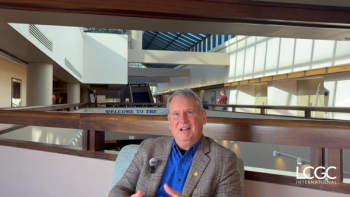
EAS Coverage: Innovative Forensic Approaches to Cannabis Analysis: Streamlining Protocols and Overcoming Legalization Challenges
At the Eastern Analytical Symposium (EAS) in Plainsboro, NJ, Rabi Musah from the State University of Albany presented a talk titled, "Things WE’ED Like to Avoid - Circumventing Measurement Challenges When Analyzing Complex Cannabis Matrices". This presentation discussed the complexities of cannabis testing and why we need new methods in the industry.
In this presentation, Rabi Musah delved into the intricate challenges confronting forensic labs in the analysis of cannabis-associated matrices, particularly in the context of the evolving legal landscape surrounding marijuana and hemp. The legalization and decriminalization of marijuana, coupled with the recognition of hemp as an agricultural product in the 2018 Farm Bill, have significantly impacted forensic procedures. The key challenge stems from the need to differentiate between hemp and marijuana based on tetrahydrocannabinol (THC) levels, necessitating new testing strategies and protocols.
The presenter highlighted the paradigm shift post-2018, with cannabis entering crime labs in unprecedented quantities, leading to an overwhelming increase in workload. The legalization at the state level also ushered in a wave of diverse cannabis-infused products, further complicating the forensic analysis process. The crux of the matter lies in the development of protocols capable of handling the vast array of complex matrices associated with cannabis, ranging from plant materials to edibles and personal care products.
To address this multifaceted challenge, Musah introduced a novel approach using direct analysis and real-time high-resolution mass spectrometry (Dark MS). This method aimed to streamline the screening, extraction, and derivatization processes across a wide spectrum of matrices. The emphasis was on devising a universal extraction protocol to mitigate the need for nuanced, matrix-specific methods, ultimately contributing to more efficient forensic workflows.
Musah detailed the optimized protocol involving water suspension, sonication, and acetonitrile addition to achieve a three-layer separation for efficient extraction. The Dark MS method demonstrated its versatility by successfully quantifying THC and cannabidiol (CBD) in various commercial products, showcasing a high degree of accuracy compared to labeled concentrations. The approach not only provided a means to circumvent testing backlogs but also offered a platform for differentiation between THC and CBD isomers through derivatization.
The broader implications of this methodology extend beyond labs equipped with Dark MS, as the streamlined extraction protocol could benefit labs relying on other techniques, such as gas chromatography. The speaker underlined the potential impact on crime labs facing resource constraints and the importance of staying abreast of legislative developments that may influence forensic procedures.
The presentation concluded with a Q&A session, addressing inquiries about the importance of speciation and the potential integration of chromatography for enhanced differentiation of THC isomers.
Newsletter
Join the global community of analytical scientists who trust LCGC for insights on the latest techniques, trends, and expert solutions in chromatography.




